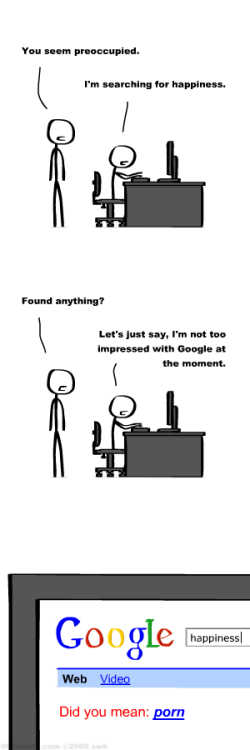That motivates me as a person. I would have to say that the only reasonable thing to say would be the understanding of cause and effect. When we want a certain effect, we will plant the cause. Simply. But there will be some people who will immediately object asking “Cause and Effect? Isn’t that a tad trivial?” Might be so. And might not be. The understanding of Cause and Effect is the basis of everything we believe in. The clarification of our understanding of Cause and Effect is the heart of our personal life philosophy or religion. And that will determine what kind of person we are and defines our identity. Therefore, the understanding of Cause and Effect is central to my Buddhist thoughts.
When a doctor wants to cure a patient, it is necessary to identify the cause of the problem. The wrong diagnosis could result in disaster. Therefore, the identification of the cause cannot be taken lightly. This is even more so when we try to identify the cause of human sufferings. Everyone seeks to be happy. Nobody can honestly claim that they reject happiness. But what is the cause for happiness?
There are people who subscript to the idea of indeterminism. These people will decide that life happens by chance. And there are others who hold on to the belief of determinism. But regardless of whether they think life happenings are predestined or otherwise, it is not hard to accept causality within the parameter of their current existence beginning with birth and ending with death. This understanding of Cause and Effect are represented by Confucianism, Taoism and many western rationalism including the Abrahamic religions as well as person who believe in the absolute secularity of modern science. But such understanding cannot provide satisfactory answers to questions such as “Why are people born into different circumstances?” and “Why are evil sometimes not punished and good not rewarded?”. Moreover, for people who attribute causes to the external forces of nature or to some deity or god, they run the danger of limiting human will and autonomy.
The alternative is to recognise the existence of karma and the cyclic nature of life. With karma, it simply means that we reap what we sow. It takes a lot of courage to accept the concept of karma however, as it means to take full responsibility of all the happenings around us even if we do not remember what causes we created. Further, it is not hard to realise that it is way easier to create negative karma than positive ones. Hence the despair that the odds of our lives going in the negative direction is higher than the positive. But I must choose to accept the concept of karma because the alternative cannot stand to the scrutiny of Cause and Effect.
To further our understanding of Cause and Effect, we have to realise that often, “scaffolding” is required. We cannot expect someone to understand calculus without first learning basic arithmetic. Similarly, the understand of Cause and Effect needs a certain sequence of building up. Many causal learner of religions recognise Buddhism only by the fact that it teaches the Four Noble Truth and the Eightfold Paths. But in reality, these teachings are merely preparatory for the main lessons of Buddhism. If one is to only base on these basics, they can be termed as practicing Hinayana Buddhism. The main characteristic of Hinayana Buddhism is to focus on the elimination of unhappiness thinking that this elimination is the cause of happiness. But that is highly passive and not the complete intent of Buddhism. Hinayana posits the cause of unhappiness as earthly desires. But since earthly desires can never be truly eradicated, there are limitation to Hinayana Buddhism. In contrast, Mahayana Buddhism focussed on helping others attain enlightenment, directly seeking positive causes towards happiness. This is termed the Bodhisattva Way which concentrate on creating positive karma by helping others rather than worry about our accumulated bad karma. I choose to be proactive in this respect.
We move on next to the idea of enlightenment, which is to manifest the state of absolute happiness regardless of our circumstances. Pre-Lotus Sutra Mahayana Buddhism described Buddhahood as an unattainable ideal much like the concept of utopia. The purpose is to develop a strong sense of yearning as well as to give everyone a common direction to strive for. This is another case of “scaffolding”. It is hence, not surprising that while many scholars recognise the status of the Lotus Sutra as the highest teaching of Buddhism, many lack the confidence to practice it as they view it as “post-graduate stuff”. In fact, it is within the Lotus Sutra that stated that “this sutra can only be understood among Buddhas”. But upon careful examination, we will find that it declare that Buddhahood is possible for all. Only with such confirmation that the destination is real can Cause and Effect have any meaning. Therefore, I choose to practice the Lotus Sutra.
But then comes an interesting twist. Deeper study into the Lotus Sutra (specifically in the Life-span chapter) reveals that Shakyamuni did not attain enlightenment in his current lifetime but rather, in the infinite past. What he is trying to explain is that his current enlightenment is possible only because he had already attained Buddhahood in the past. Therefore, it is not the case of his Bodhisattva Way being the Cause and the Enlightenment the Effect, but the other way around. His innate Buddha nature is the Cause for his Bodhisattva way. This is a new breakthrough in our understanding of Cause and Effect. We are all inherently Buddhas who continue to suffer for the sake of demonstrating the effectiveness of the Bodhisattva Way in bringing about happiness.
The final progression of the understanding of Cause and Effect is the fact that Shakyamuni declared: “At first, I practiced the Bodhisattva Way,“ when explaining about his enlightenment. This cyclic nature of Cause and Effect is consistent with the cyclic nature of life understood by Buddhist. Combined with the understanding that Buddha nature last for infinite among of time and that life is eternal, we can conclude that Cause and Effect of happiness actually occurs simultaneously. The moment we rouse the courage to make the determination to do good for others, our Buddha nature is also activated and compassion and wisdom will well forth. And when the good is done, we renew our conviction on our Buddha nature and derive fresh courage. And then to repeat that consistently. This, I believe, is the happiest way of life.
To recap, the provisional, pre-Lotus Sutra teachings are temporary expedients to set forth a view of enlightenment. The complete understanding of Buddhism has to come with the progression of the understanding of Cause and Effect from “teaching of cause and effect as disparate nature”, to “teaching of cause and effect as identical nature”, to “teaching of cause and effect as eternal existence”, and finally to “teaching of cause and effect in a single life-moment”.















